Critical thinking skills Building Vocabulary Worksheets for Ages 5-9
7 filtered results
-
From - To
Unlock the power of critical thinking with our Building Vocabulary Worksheets, designed specifically for children aged 5-9! These engaging worksheets encourage young learners to enhance their vocabulary while developing essential critical thinking skills. Through interactive exercises, kids will analyze language, make connections, and deepen their understanding of words in context. Our resources are perfect for both classroom settings and at-home learning, helping to foster curious minds and confident communicators. Empower your child’s educational journey by cultivating their cognitive abilities with fun, structured practice that transforms learning vocabulary into an exciting adventure! Explore our collection and watch your little ones thrive!
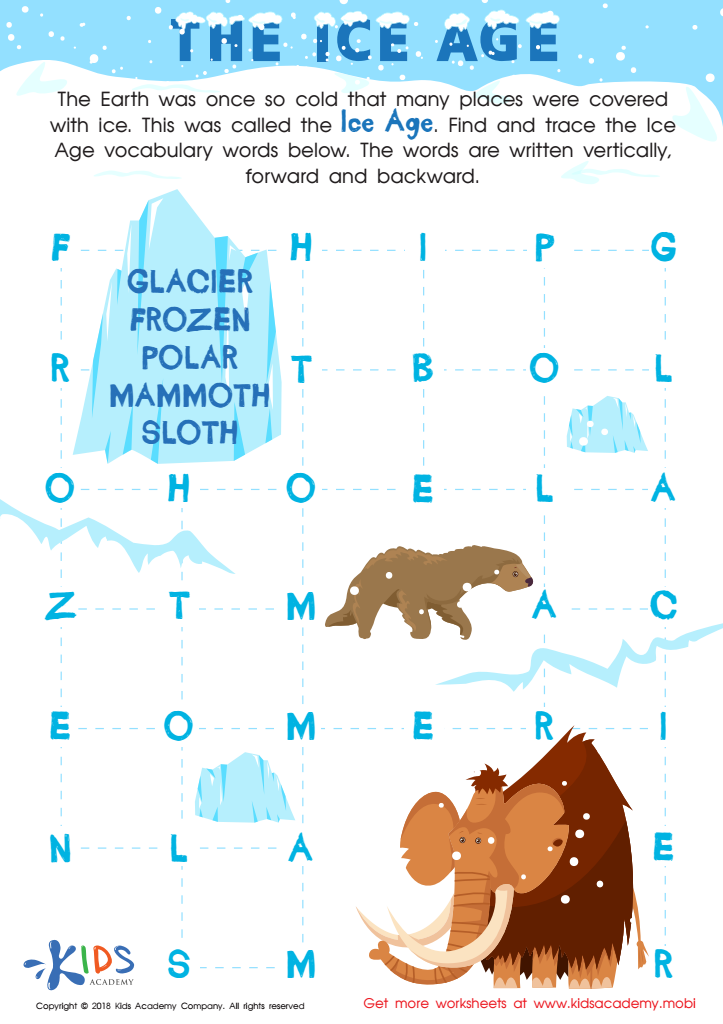

The Ice Age Worksheet
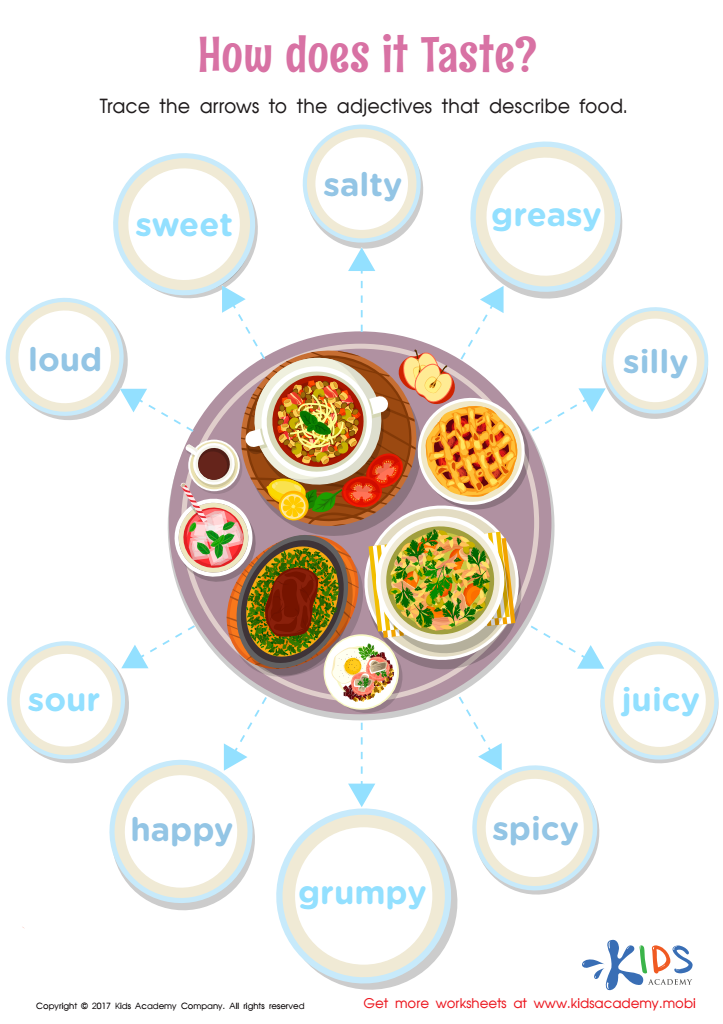

Food Adjectives Worksheet
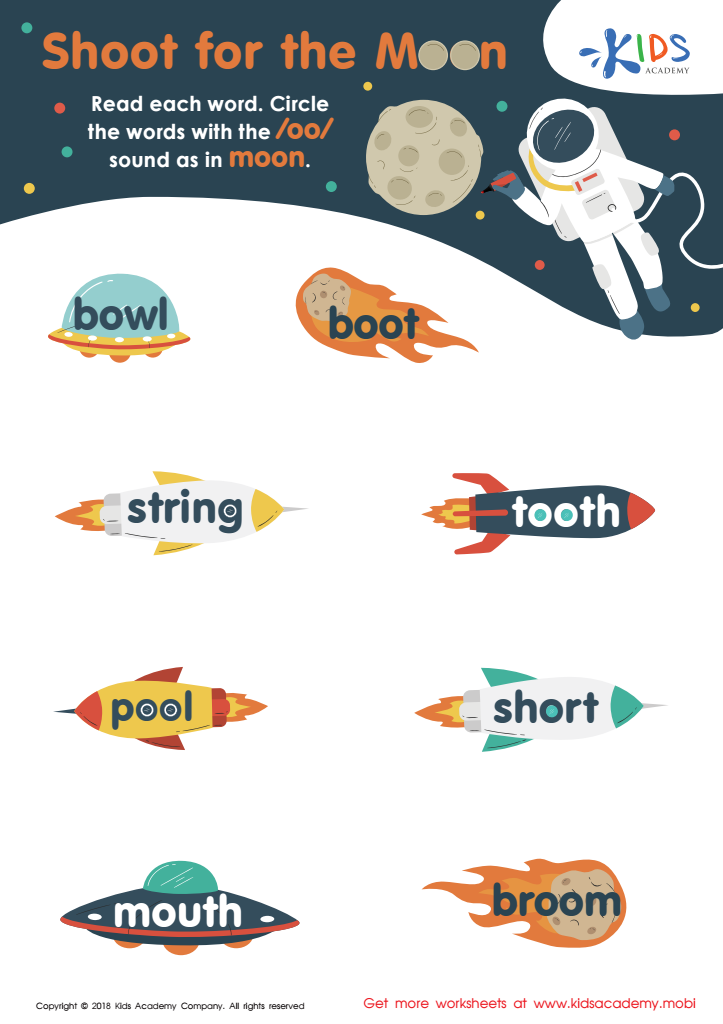

Reading: Shoot for the Moon Worksheet
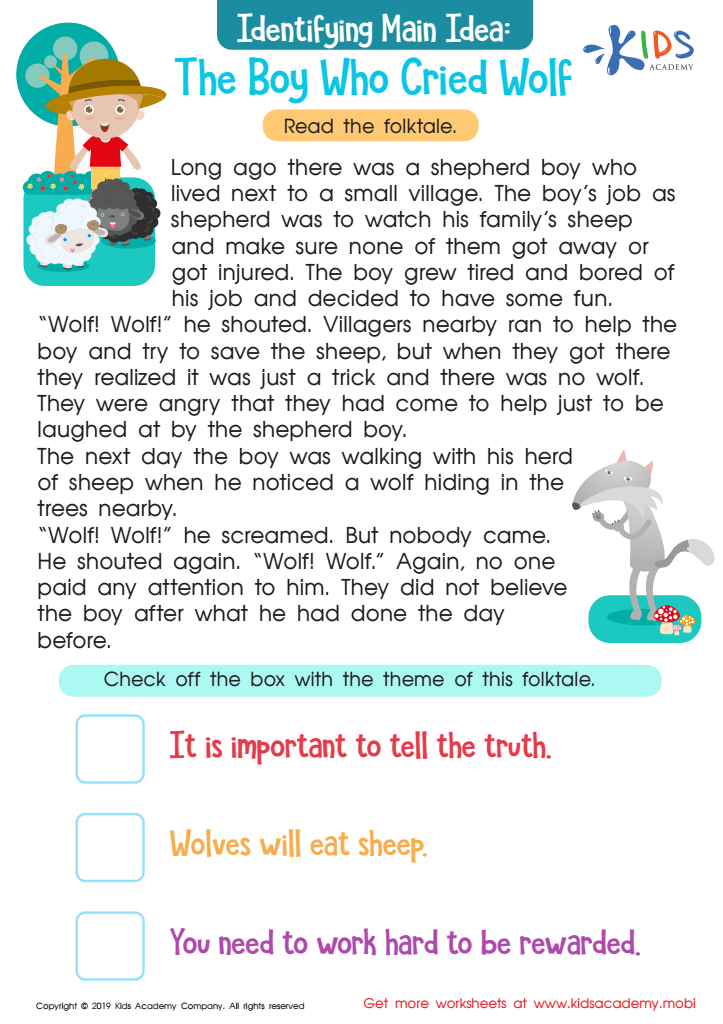

The Boy Who Cried Wolf Part 2 Worksheet
Critical thinking and vocabulary development are essential components of a child's early education, particularly for ages 5-9. During this stage, children are rapidly developing cognitive abilities and language skills, which provide a foundation for future learning and problem-solving.
Critical thinking skills enable children to analyze, question, and evaluate information, fostering creativity and independent thought. When encouraged to think critically, children learn to make reasoned decisions, solve problems effectively, and approach challenges with a growth mindset. This capability not only enhances academic performance but also equips them with essential life skills for navigating an increasingly complex world.
Building vocabulary likewise plays a pivotal role in a child’s educational growth. A rich vocabulary enhances comprehension and communication abilities, allowing children to express their thoughts more clearly and articulate their ideas confidently. The more words they acquire, the better they can understand and engage with complex concepts, including those encountered in mathematics and science.
As parents and teachers focus on developing these skills collaboratively, they empower children to become confident learners and critical thinkers. Investing in critical thinking and vocabulary not only enriches a child's educational experience but also prepares them for lifelong success in school and beyond.

 Assign to My Students
Assign to My Students














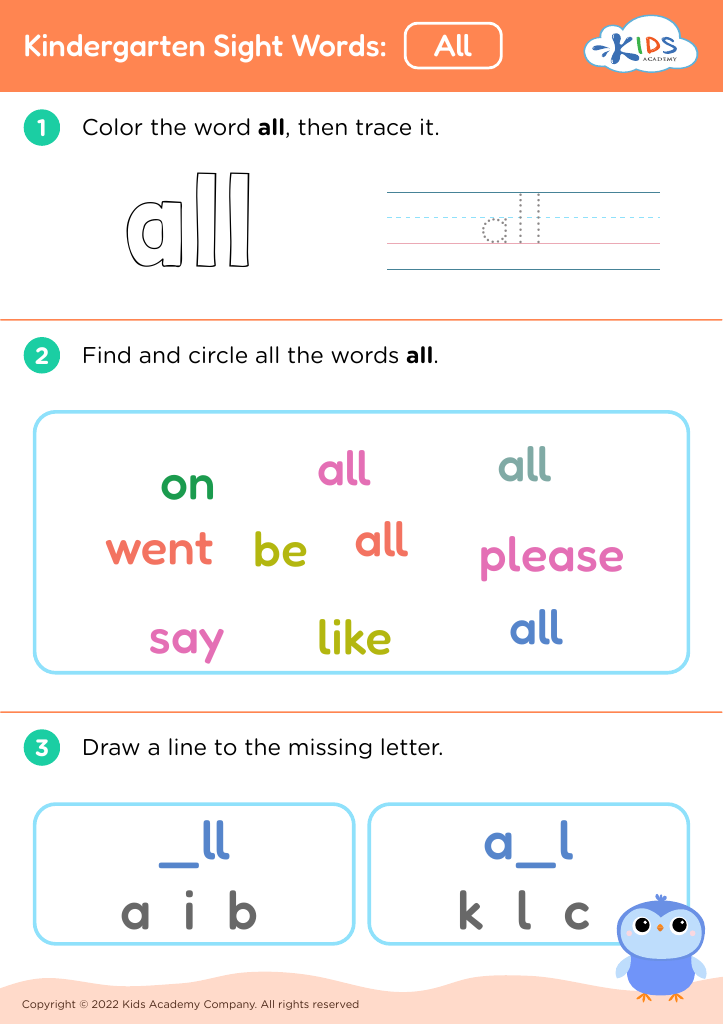





.jpg)














